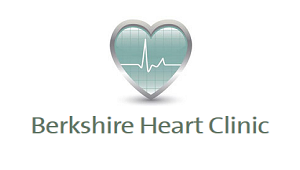Tell us what you think
We welcome your views on our website and invite you to take part in a brief survey when you've finished your visit.
Your response will help us improve the site and the experience we offer to visitors.
The Berkshire Heart Clinic
Heart issues? Discuss the problem with our highly trained cardiologists

The Berkshire Heart Clinic offers expert and prompt cardiology care to the patients of the Thames Valley region. We are based at Spire Dunedin Hospital and we pride ourselves in offering excellent specialist care and advice. We offer patients a rapid access consultant-led clinic and provide a comprehensive range of assessments with very short waits for appointments times.
The Berkshire Heart Clinic is made up of a group of highly trained cardiologists who are passionate about what they do. They run their private clinics out of Dunedin Hospital in Reading and can diagnose and test patients with the state-of-the-art equipment provided.
The clinic offers a comprehensive service to our patients, helping us to care for you from the initial diagnosis and investigations on your first visit through to agreeing to the treatment plan at any subsequent consultations.
We offer a range of services including:
- Echocardiogram
- Stress echocardiogram
- 24/48 hour/7 day ECG monitoring
- 24 hour blood pressure monitoring
- Cholesterol tests
- Perfusion scanning
- Cardio call event recorder
At the Berkshire Heart Clinic we treat a number of cardiac problems including:
Coronary Artery Disease
What is Coronary Artery Disease?
Coronary artery disease describes narrowing of the arteries which can prevent blood getting through to the heart and lead to chest pain (or angina as it is commonly known).
What can be done about Coronary Artery Disease?
Medication is used for immediate relief of symptoms as well as long-term prevention of angina and to help prevent the coronary artery disease worsening.
In severe cases, where medication has failed, surgery may be recommended as the appropriate course of treatment, this would be completed at a different hospital.
Heart Failure
What does the term heart failure mean?
Symptoms such as tiredness, ankle swelling and breathlessness are common in patients deemed to be suffering from heart failure. These symptoms are the result of not enough blood being pumped around the body by the heart.
What causes heart failure?
It can be caused by a number of conditions but the main causes are usually high blood pressure or a heart attack.
What can be done about heart failure?
Whilst the damage caused to the heart cannot be repaired, your cardiologist will be able to discuss treatment options with you that can keep it under control and help relieve some symptoms.
Tests to diagnose heart failure
Blood tests, chest X-ray, electrocardiogram (ECG) and an exercise ECG are commonly carried out to help diagnose heart failure. Depending on the results, other tests may be carried out at a later date.
Valvular heart disease
What is valvular heart disease?
Valvular heart disease produces an irregular sound (heart murmur) that can be heard by a stethoscope. This sound is related to the opening and closing of the valves in the heart.
Murmurs can be entirely innocent and be caused by something as simple as a high rate of blood flow, which is common during youth and pregnancy.
Visible symptoms caused by valvular heart disease are breathlessness, dizziness, a tight feeling in the chest and in some cases ankle swelling.
Arrhythmias
What are arrhythmias?
Arrhythmias are abnormal heart rhythms which cause the heart to pump less effectively. Electrical signals are sent through the heart chambers and arrhythmias are caused when these signals are interrupted.
What contributes to arrythmias?
There are a number of factors that can contribute to arrhythmias such as coronary artery disease, high blood pressure, stress, smoking, diabetes and excessive drinking of alcohol or caffeine.
Hypertension
What is hypertension?
Hypertension is an excessively high blood pressure. Hypertension is common with increasing age as the blood vessel walls get stiffer. Having high blood pressure increases the risk of stroke and heart disease.
Tests for hypertension
In most cases simple tests such as a blood test, chest X-ray, electrocardiogram and certain urine tests are enough to determine the correct treatment options.
Our consultants
To make an appointment
To find out more or to make an appointment please call 0118 955 3433 or
email us
